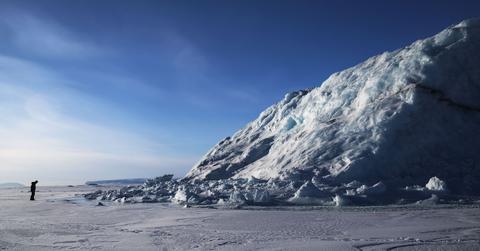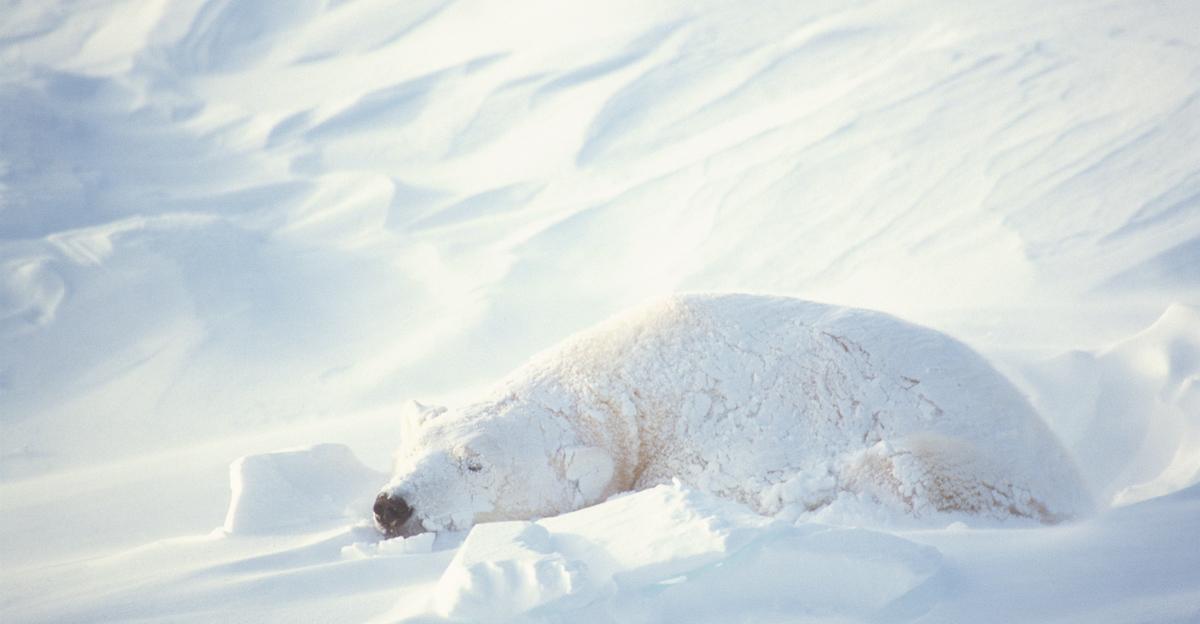The Arctic Is Warming Four Times Faster Than Rest of the Globe, Study Finds
Published Aug. 11 2022, 4:22 p.m. ET

Global heating is affecting pretty much every corner of the Earth — but nowhere as intensely as the Arctic, which is warming faster than the rest of our planet — nearly four times faster — according to a new study.
But why is this happening? Here's what we know.
The Arctic is warming faster than anywhere else in the world, as per a new study.
On Aug. 11, researchers from Finnish Meteorological Institute published a report in the journal Communications Earth, for which they studied the warming ratio of various areas of planet Earth between 1979 and 2021. They discovered that over the last 43 years, the Arctic has been warming nearly four times faster than the rest of the globe.
Interestingly, the authors of the study note that there have been “numerous” studies that found the Arctic is warming between two and three times as fast as the rest of the world; but this new research shows that warming in the Arctic may be even more intense and rapid than previously thought, in a process known as Arctic amplification.

What is Arctic amplification?
It has been common knowledge for many years that the Arctic is warming more rapidly than anywhere else on Earth — in fact, the researchers behind this new study call that a “robust fact.” And there is even a name for this situation: Arctic amplification, which is defined as the phenomenon of the Arctic's temperatures rapidly.
“We were frustrated by the fact that there’s this saying that the Arctic is warming twice as fast as the globe,” Dr. Mika Rantanen, lead author of the study, told The New York Times. “But when you look at the data, you can easily see that it is close to four.”
Why is the Arctic warming faster than the rest of the world?
A polar bear clutching onto a melting ice shelf in Arctic waters has long been a symbol of global warming — and considering how fast the Arctic is heating up, that makes sense. But why is the Arctic warming at such a rate?
In general, the answer is human-caused global warming — as we burn fossil fuels and contribute to the greenhouse effect in other ways, the atmosphere warms. But why is the Arctic on the receiving end of the brunt of the warming?
According to the study, there are a number of factors that have potentially contributed to Arctic amplification, including:
- Increased ocean heating, due to human-caused global warming
- Ice-albedo feedback, a positive feedback loop that is a result of diminishing sea ice, which is a result of global heating
- Planck feedback, which is the idea that a “warm planet radiates more to space than a cold planet”
- Lapse-rate feedback, which is known for causing amplification of polar temperatures
- Near-surface air temperature inversion, which is when the temperature by the surface is colder than air over the surface
- Cloud feedback, which is global warming-driven changes in Earth’s cloud cover, which can affect climate change
- Meridional atmospheric moisture transport, which has changed in recent years
- Reduced air pollution in Europe and reduced aerosols in Asia.
That being said, this all comes down to climate change. In order to protect the Arctic — and the many valuable species that make up its biodiversity — we must continue taking climate action and pressuring world leaders to protect our planet.